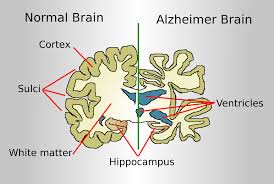A Comprehensive Overview of Alzheimer’s Disease

Introduction
Alzheimer’s disease is the most common form of dementia, affecting millions worldwide. As the population ages, understanding this condition becomes increasingly important both for caregivers and society at large. It has profound implications on healthcare systems, families, and the lives of those diagnosed, as it affects memory, thinking, and behaviour.
Current Statistics and Impact
According to the Alzheimer’s Society, over 850,000 people are currently living with dementia in the UK, with Alzheimer’s accounting for 62% of these cases. As these numbers continue to rise, the strain on healthcare services increases, necessitating urgent research and the development of effective treatment options.
Symptoms and Progression
The symptoms of Alzheimer’s typically manifest gradually and worsen over time. Common early signs include forgetfulness, difficulty concentrating, and confusion about time or place. As the disease progresses, patients may experience severe memory loss and difficulty performing everyday tasks. Understanding these symptoms is crucial for early diagnosis, which can significantly impact the management of the disease.
Recent Advancements in Research
Recent breakthroughs in Alzheimer’s research have offered new hope. In 2023, scientists announced a promising new drug that shows efficacy in slowing the progression of the disease. The drug targets amyloid plaques in the brain, which are believed to contribute to Alzheimer’s. Clinical trials have reported stabilisation of cognitive decline in participants, marking a potential turning point in treatment.
Conclusion
Alzheimer’s disease remains a complex and challenging condition, impacting individuals and families profoundly. However, advancements in research and increasing public awareness are fostering hope for better detection and management strategies. For readers, staying informed about the latest developments and supporting ongoing research is vital, as it could lead to enhanced care for those affected. Ultimately, understanding Alzheimer’s not only empowers caregivers but also prepares society for the challenges ahead.
